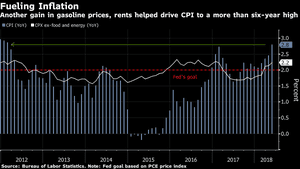Europe is not in good shape.
Italy now has a
government of leftist and rightist populists in power. Hungarian Prime
Minister Viktor Orbán is telling the opposition party in Macedonia to
reject a proposed deal between Skopje and Athens to resolve the dispute
over Macedonia’s name.
Forget the fact that an end to
this conflict would fill one of the security vacuums in this part of the
Western Balkans, which should enhance European security. Macedonia
could join NATO which Greece, until now, had vetoed because of the name
issue.
More worrying, is that what is taking place in
Europe today is, unwittingly, a collusion of interests between the Trump
administration and the Kremlin.
These interests are
about dividing the EU. In the case of the United States, these policies
undermine the transatlantic alliance and weaken the West’s projection of
its values. But above all, these interests are about undermining
Germany, and in particular Angela Merkel, who has been chancellor of
Europe’s biggest economy since 2005.
So why are Russia and the Trump administration targeting Merkel?
Let’s take Russia.
Once
she became chancellor in late 2005, Merkel slowly chiseled away at the
policies of her Social Democrat predecessor Gerhard Schröder. The former
German chancellor had established very close links with Putin, even
referring to him as “an impeccable democrat.”
Merkel
was having none of that. She reached out to Russia’s civil society
activists. She spoke her mind with Putin. By the time the Russian
president had illegally annexed Crimea in March 2014, Merkel knew where
she stood with him.
Putin underestimated Merkel’s
ability to get all EU member states on board to impose sanctions on
Russia. Yet she did it. That weakened, to a big degree, the pro-Russia
wings in Germany’s Social Democratic Party. The party’s “Ostpolitik”—or
eastern policy that was based on rapprochement with Russia—was put on
hold. So far, that Merkel line has held.
It hasn’t been
easy. Both Germany’s pro-Russian Alternative for Germany (AfD) party
and Italy’s new government want to end the sanctions on Russia. There
were similar calls to lift the sanctions during Putin’s fulsome welcome
by Austrian Chancellor Sebastian Kurz in Vienna on June 5.
Putin
is intent on dividing the EU, which means undermining Merkel’s
authority. Needless to say, he denied that during an interview with
Austria’s public TV channel ORF: “We do not pursue the objective of
dividing anything or anyone in the EU,” he said.
As for Trump, his policies are far more dangerous
because, for the first time since World War II, the leader of the West
is trying to isolate and undermine Germany. That means weakening Europe
and the alliance.
This goes against the strategic
policies of every, successive American administration since 1945.
Policies that have been unflinchingly committed to building a Western,
and later united, Europe anchored on the Franco-German alliance and
“embedded” in what is today’s European Union.
Yes,
there were big differences and quarrels over the deployment of U.S.
Pershing missiles in West Germany in the 1980s and later the American
invasion of Iraq in 2003. The point is that the alliance and the EU
managed to hold together. So why are Trump and his emissaries now trying
to do the opposite?
One reason is that Trump sees
allies not based on values but based on short-term American interests in
which allies are chosen at random. Yet slapping protectionist trade
measures on key allies such as Mexico, Canada, and Europe on the
spurious grounds of national security begs the question why the United
States should be doing business with non-democratic or authoritarian
countries such as Egypt or China. Do they enhance America’s security?
Second,
Trump’s attack on Europe is not just about trade and spending more on
defense—issues that the U.S. president will no doubt raise at next
month’s NATO summit in Brussels. It is about Germany. Or rather it is
about Angela Merkel.
Merkel has refused to pander to
Trump since the day he was elected. She stood up to him on trade and
climate change issues during the 2017 G20 and G7 meetings. She endured
humiliation when he gave her limited time during her recent visit to
Washington in April. And all the while, Trump’s new ambassador to
Berlin, Richard Grenell, has spoken about “empowering anti-establishment
European leaders.”
Merkel, for the moment, has wisely
shrugged off Grenell’s statements and interviews by leaving it to others
to respond. But what Merkel cannot shrug off is how the American
administration is singling out Germany for its trade surplus, for its
car exports to the United States (forget the fact that the German car
industry combined has created 110,000 jobs in America), for its refugee
policy, and for its policy toward Russia. In short, for its status in
Europe.
It’s as if the United States was trying to set
other EU countries against Germany, especially given Berlin’s
anti-austerity policies in dealing with indebted eurozone countries. All
the more reason for EU heads of state and government to rally behind a
leader that has shown some spunk when it comes to dealing with Putin,
refugees, and Trump. And for keeping the EU together.
Read more: The United States and Russia Target Germany - Carnegie Europe - Carnegie Endowment for International Peace






